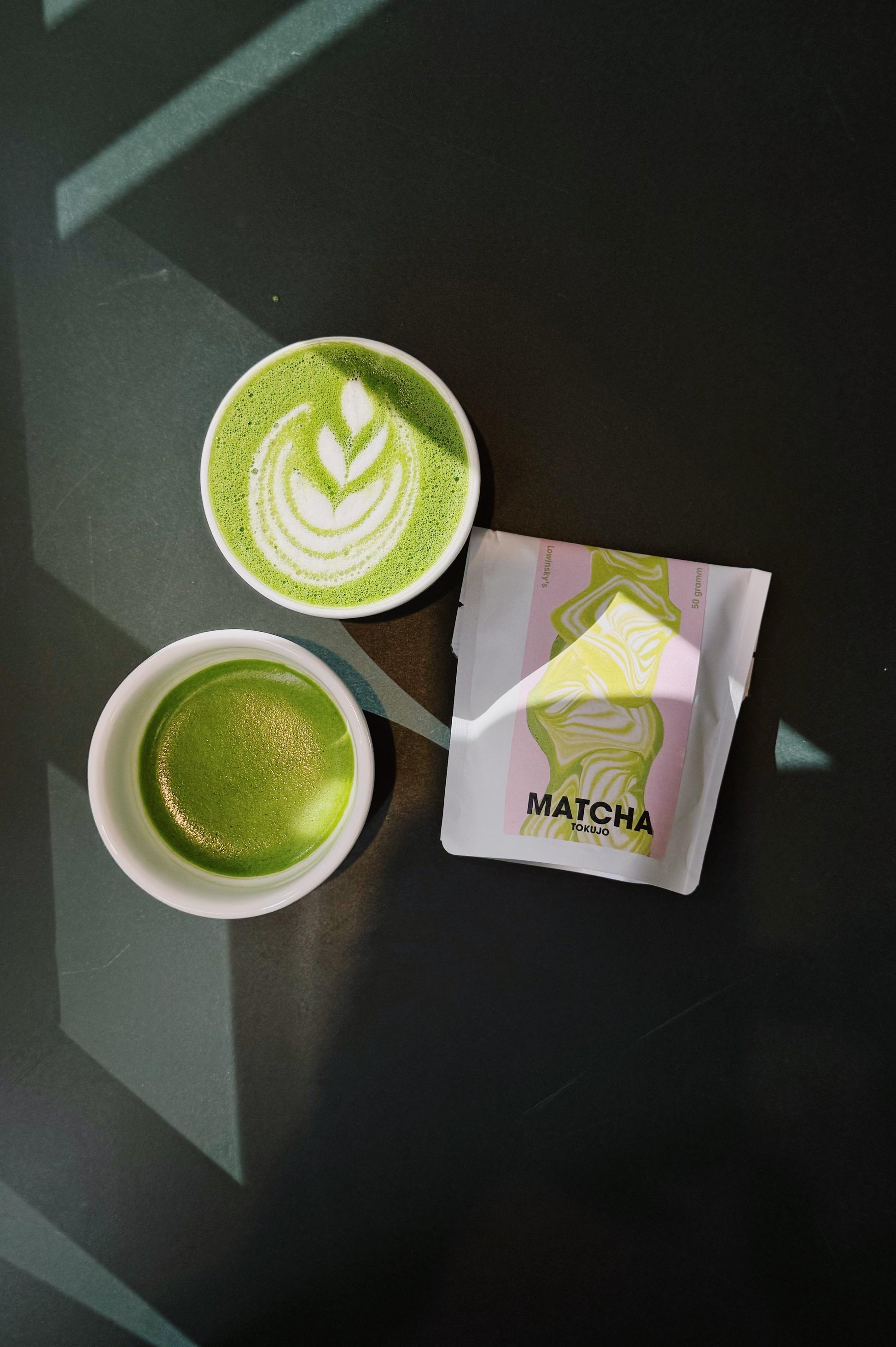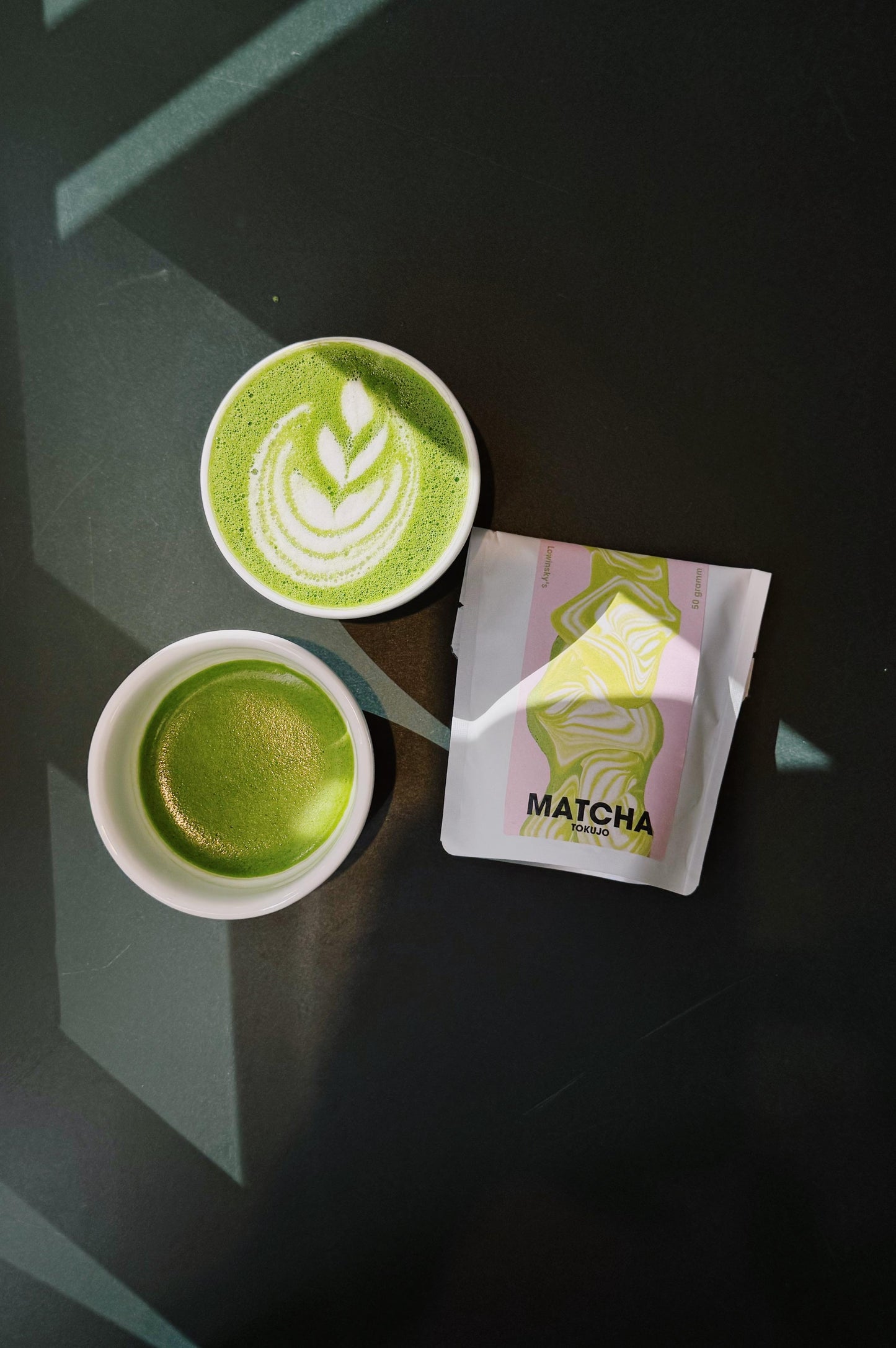Tõde orgaanilise matcha sertifitseerimise kohta
Hamburgi teeeksperdi vaatenurk orgaanilise sertifitseerimise vs. tegeliku kvaliteedi kohta tseremooniakvaliteedi matchas.
Orgaanilise sertifitseerimise paradoks erialases tees
Otsides esmaklassilist matchat Hamburgis või kusagil mujal Saksamaal, kohtate termineid nagu "orgaaniline", "kevadine saak" ja "tseremooniaklass". Need märgised loovad eelduse: kallis orgaaniline matcha peab olema parema kvaliteediga. Pärast aastaid autentse Jaapani tee importimist otse tootjatelt Kyotos, Kagoshimas, Yames ja Shizuokas, olen avastanud, et see eeldus on sageli vale.
Siin on see, mida enamik matcha ostjaid ei tea: parima maitsega, kõrgeima kvaliteediga matcha Jaapani väikestelt käsitööfarmidelt pole sageli orgaaniliselt sertifitseeritud – kuigi see on kasvatatud ilma pestitsiidideta, kasutades traditsioonilisi, jätkusuutlikke meetodeid.
Miks Lowinsky's esmaklassiline matcha pole märgistatud "orgaaniliseks" (vaatamata pestitsiidivabadusele)
Meie tseremooniakvaliteedi matcha pärineb väikestelt perefarmidelt Jaapanis, mis järgivad orgaanilisi kasvatuspraktikaid. Neid teesid kasvatatakse ilma pestitsiidideta, kasutades traditsioonilisi Jaapani põllumajandusmeetodeid, mis on edasi antud põlvkondade kaupa. Siiski takistavad Saksamaa ja ELi määrused meil kasutamast sõna "orgaaniline" meie siltidel või menüüdes.
Orgaanilise sertifitseerimise bürokraatlik reaalsus Saksamaal
Et müüa teed Hamburgis "orgaanilisena", on vaja:
- Pühendatud ainult-orgaanilised laopinnad poes
- Eraldi töötlemisseadmed
- Sertifitseeritud orgaaniline tarneahel Jaapanist Saksamaale
- Regulaarsed inspektsioonid ja märkimisväärsed tasud
- Täielik eraldatus mis tahes mitteorgaanilistest toodetest
Isegi orgaanilise matcha hoidmine suletud alumiiniumkottides samas ruumis tavalise jahuga rikuks sertifitseerimise nõudeid – vaatamata nullilähedasele ristsaastumise ohule.
Hamburgi tollilugu: kui orgaanilised märgised tekitavad probleeme
Hiljuti importisin erakordset Tsuyuhikari matchat ühelt meie usaldusväärsetelt tootjatelt. Vaatamata selgele suhtlusele, et Lowinsky's pole orgaaniliselt sertifitseeritud, märkis tootja ekslikult iga kilogrammi tolliarvel "orgaaniliseks".
Hamburgi toll pidas saadetise kinni. Ametnik, teadlik kuid range, selgitas, et ilma orgaanilise sertifikaadita ei saa ma importida teed, mis on märgistatud orgaanilisena – isegi kui lubasin seda mitte müüa orgaanilisena. Pärast tunde paberitööd ja saadetise peaaegu tagasilükkamist seisis meie eest üks regulaarne Lowinsky's klient, kes juhtus töötama tollis. Nad saatsid peaaegu 5000 euro väärtuses esmaklassilist matchat tagasi Jaapanisse märgistamise tehnilise detaili pärast.
See kogemus kristalliseeris olulise tõe: "orgaaniline" on peamiselt paberimajanduse, mitte kasvatuspraktikate kohta.
Miks Jaapani parim matcha pärineb väikestelt, mittesertifitseeritud farmidelt
Ressursside probleem
Orgaaniline sertifitseerimine maksab tuhandeid eurosid aastas – jõukohane suurte äriliste ettevõtete jaoks, kuid takistav väikeste perefarmide jaoks. Jaapani osavaimate teemeistrite farmid Kyotos, Kagoshimas, Yames ja Shizuokas, kes kasvatavad unikaalseid sorte nagu Okumidori ja Samidori traditsioonilisi meetodeid kasutades, ei saa sageli endale sertifitseerimist lubada vaatamata nende parematele praktikatele.
Kvaliteedi pöördvõrdeline seos
Aastate jooksul importides ja maitstes olen täheldanud mustrit: mida suurem teetootja, seda tõenäolisem on neil orgaaniline sertifikaat – ja seda vähem huvitav kipub nende tee olema. Masstoodetud orgaaniline matcha seab saagikuse ja sertifitseerimise vastavuse maitsekeerukuse ja umami sügavuse ette.
Kohaliku farmi analoogia
Mõelge porgandite ostmisele Hamburgis. Te võiksite osta orgaanilisi porgandeid REWE-st või külastada väikest Eppendorfi turufarmi. Väike farm kasutab tõenäoliselt orgaanilisi praktikaid, kuid tal puudub sertifikaat kulude tõttu. Millised porgandid maitsevad paremini? Millised toetavad jätkusuutlikku põllumajandust? Vastus on selge igaühele, kes hindab kvaliteeti märgiste asemel.
Sertifitseerimise peidetud nüanss, mida enamik tarbijaid ei tea
Kui Jaapani teeaiad taotlevad orgaanilist sertifitseerimist, uurivad inspektorid tavaliselt ainult väikest maatükki – võib-olla 5-10% kogu kasvatusalast. Kui see on sertifitseeritud, saab kogu ettevõte turustada teed "orgaanilisena", isegi kilomeetrite kaugusel asuvatest kontrollimata osadest.
Keskkonnategurid komplitseerivad seda veelgi:
- Tuul kannab õietolmu ja mulda farmide vahel
- Veesüsteemid ühendavad mitut kasvuala
- Täielik isolatsioon on praktiliselt võimatu Jaapani tihedates põllumajanduspiirkondades
Mis tõeliselt loeb: maitse, terroir ja traditsioonilised meetodid
Lowinsky'ses seame esikohale:
- Otsesed suhted väikeste farmidega Kyotos, Kagoshimas, Yames ja Shizuokas
- Traditsioonilised kasvatusmeetodid sealhulgas käsitsi korjamine ja varjus kasvatamine
- Erakordsed maitseprofiilid väljendunud umamiga ja minimaalse mõrudusega
- Läbipaistvus kasvatuspraktikate ja päritolu osas
- Värskus läbi iganädalaste impordisaadetiste ja korraliku ladustamise
Meie kliendid tulevad tagasi mitte sertifikaadimärgiste pärast, vaid sest nad saavad maitsta erinevust, mida kvaliteetne kasvatamine teeb.
Kuidas valida kvaliteetset matchat Hamburgis
Selle asemel, et keskenduda ainult orgaanilistele märgistele, kaaluge:
- Päritolu täpsus – Kas müüja oskab nimetada täpse farmi ja piirkonna?
- Saagi teave – Kas see on tõesti esimene korje (ichibancha)?
- Värvi erkus – Esmaklassiline matcha peaks olema erkroheline, mitte kollakas
- Tekstuur – Tseremooniaklass peaks olema uskumatult peen (5-10 mikronit)
- Maitse – Kvaliteetsel matchal on umami magusus, mitte mõrudus
- Hinna läbipaistvus – Äärmiselt odav "orgaaniline" matcha on tõenäoliselt masstoodetud
Lõppsõna orgaanilise matcha kohta
Orgaaniline sertifitseerimine esindab bürokraatlikku vastavust, mitte tingimata paremat kvaliteeti või isegi pestitsiidivaba kasvatust. "Orgaaniline = parem" konstruktsioon teenib suuri korporatsioone, kes saavad endale sertifitseerimist lubada, välistades samal ajal käsitöötootjad, kes sageli säilitavad kõrgemaid standardeid.
Kui külastate meie Hamburgi-Eppendorfi kohvikut või ostate veebist, valite matcha, mis on valitud erakordse kvaliteedi, mitte turunduslike märgiste järgi. Usume, et informeeritud kliendid väärivad läbipaistvust selle kohta, mida "orgaaniline" tegelikult globaalses teekaubanduses tähendab.
Kas soovite maitsta erinevust? Külastage meid aadressil Lehmweg 36 tseremooniakvaliteedi matcha valmistamise jaoks või liituge meie igakuiste töötubadega, kus uurime Jaapani teekultuuri nüansse kaugemal märgistest.


